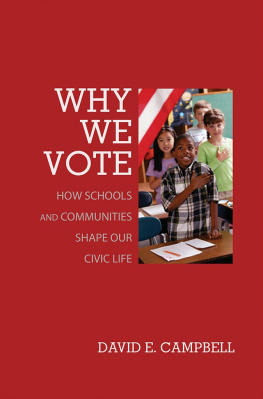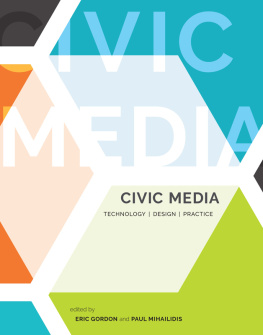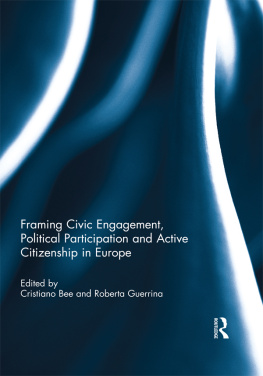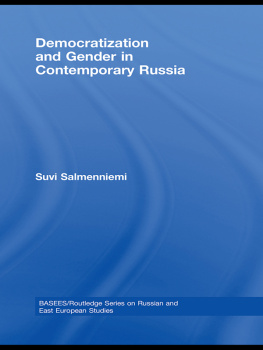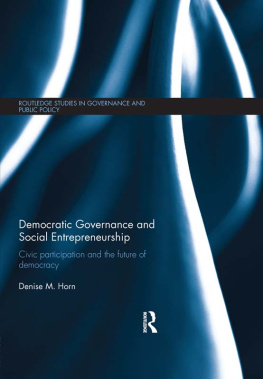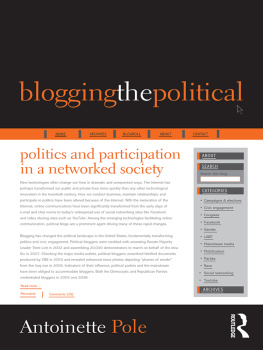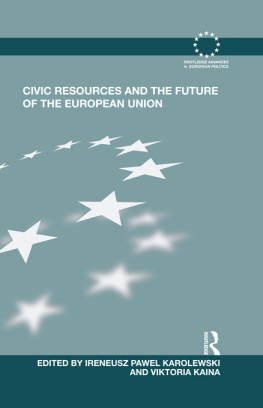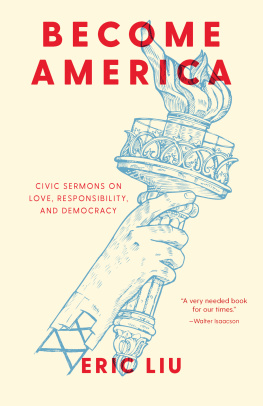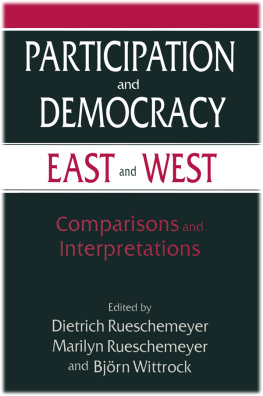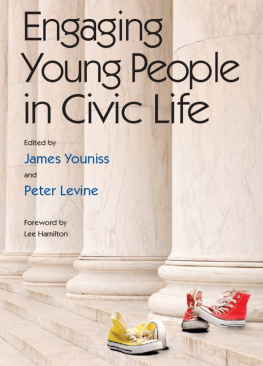Peers, Politics, and the Future of Democracy
CASEY A. KLOFSTAD
Civic Talk
In the series The Social Logic of Politics
edited by Alan Zuckerman
Also in this series:
Alan S. Zuckerman, ed., The Social Logic of Politics:
Personal Networks as Contexts for Political Behavior
James H. Fowler and Oleg Smirnov, Mandates, Parties, and Voters: How Elections Shape the Future
Simon Bornschier, Cleavage Politics and the Populist Right:
The New Cultural Conflict in Western Europe
TEMPLE UNIVERSITY PRESS Philadelphia
Casey A. Klofstad
Civic Talk
Peers, Politics, and the Future of Democracy
TEMPLE UNIVERSITY PRESS Philadelphia, Pennsylvania 19122 www.temple.edu/tempress
Copyright 2011 Temple University All rights reserved Published 2011
Library of Congress Cataloging-in-Publication Data
Klofstad, Casey A. (Casey Andrew), 1976
Civic talk : peers, politics, and the future of democracy / Casey A. Klofstad. p. cm.
Includes bibliographical references and index.
ISBN 978-1-4399-0272-1 (cloth : alk. paper)
ISBN 978-1-4399-0274-5 (electronic)
1. Communication in politicsUnited States. 2 CommunicationPolitical aspectsUnited States. 3. Political participationUnited States. I. Title.
JA85.2.U6K56 2010
320.97301 '4dc22 2010018213
The paper used in this publication meets the requirements of the American National Standard for Information SciencesPermanence of Paper for Printed Library Materials, ANSI Z39.48-1992
Printed in the United States of America
2 4 6 8 9 7 5 3 1
For Rindy
Contents
Preface | ix |
Acknowledgments | xi |
| Introduction | |
| Civic Talk and Civic Participation | |
| Does Civic Talk Cause Civic Participation? | |
| Why Does Civic Talk Cause Civic Participation? | |
| Do You Matter? | |
| Do Your Peers Matter? | |
| The Significant and Lasting Effect of Civic Talk | |
| Peers, Politics, and the Future of Democracy | |
APPENDIX A: The Collegiate Social Network Interaction Project (C-SNIP) | |
APPENDIX B: C-SNIP Panel Survey Questions and Variables | |
APPENDIX C: Matching Data Pre-processing | |
References | |
Index | |
Preface
During my first two years of graduate school, I became interested in the sociological antecedents of public opinion and political behavior. At that time, the tools I had at my disposal to address this topic were publicly available survey data and a variety of methods of statistical analysis. Using these tools, I convinced myself that engaging in political discussion with friends, family, and other peerswhat I call "civic talkled people to become more active in civil society. As soon as I had written my first paper on this subject, however, I was challenged in a research workshop with a number of indictments, such as "endogeneity, "reciprocal causation, and "selection bias. In plain English, with survey data from one period in time, I was unable to show whether our peers influence our behavior or our patterns of behavior influence how we select and interact with our peers.
This experience left me wondering how I could possibly study a phenomenon that is shrouded in such deep analytical complexity. It was at that point that I took a step back from my research question and appealed to the simplest tenets of the scientific method. I had a hypothesis that civic talk causes civic participation. All I needed now was a way to test the hypothesis with an experiment. Ideally, to do this I would randomly assign people to new peer groups, some of whom engaged in civic talk and others of whom did not. Random assignment would ensure that any observed effects would be attributable to civic talk and not any other factor.
Unfortunately, unless you are the producer of a reality television show, this ideal research design is not feasible. As much as we may want to, we cannot simply pick a representative sample of individuals and randomly assign them to new social circles. So, instead, I found a situation in nature that approximated my ideal: I conducted a panel study of first-year college students who had been randomly assigned their dormitory roommates. I also conducted a series of focus groups to gain a richer qualitative understanding of civic talk and its effect on civic participation.
As the following pages show, these data give us an unprecedented level of confidence in the notion that civic talk has a meaningful and lasting effect on an individuals patterns of civic participation. Given that citizens involvement in civil society is essential to the survival of democracy, this book shows that our peers have a critical role to play in maintaining this form of governance. Moreover, these results illustrate that extant theories of civic participation are incomplete because they focus on individual-level antecedents to the exclusion of sociological ones. Humans may not be Aristotelian political animals, but we certainly are social animals. This simple fact needs to be incorporated into our understanding and study of democracy.
Acknowledgments
A number of people provided invaluable feedback and advice as I completed this project. First, I thank David Campbell. His comments at the Harvard University Political Psychology and Behavior Workshop led me to design the study presented in this book. I am also indebted to the members of my dissertation committee for their guidance and training: Barry Burden, Theda Skocpol, and Sidney Verba. My sincere thanks go to the many friends, colleagues, anonymous referees, and conference participants who have commented on this project. I specifically thank Ben Bishin (who put me in contact with Temple University Press), Merike Blofield, Louise Davidson-Schmich, Jeff Drope, Bob Huckfeldt, Kosuke Imai, Gary King, Lisa Klein, Scott McClurg, David Nickerson, Meredith Rolfe, Tony Smith, Hillel Soifer, Anand Sokhey, John Stevenson, Laura Stoker, Elizabeth Stuart, and Kathy Walsh. I also am very grateful to Mary Rouse, former dean of students and former head of the Morgridge Center for Public Service at the University of Wisconsin, Madison, for her insight and encouragement. Finally, I will always be indebted to Mike Fischer, Jack Dennis, and the University of Wisconsin Survey Center for giving me my start in this field.
A number of agencies supplied monetary and research support for this project. I am deeply indebted to the University of Wisconsin Survey Center for administering the studies presented in this book. Grants from the American National Election Studies, the Harvard University Center for
American Political Studies, and the University of Miami helped to defray the cost of this research. I am also indebted to the National Science Foundation, the Harvard University Center for American Political Studies, the Harvard University Graduate School of Arts and Sciences, and the University of Miami for financial support through various fellowships and awards.
My thanks go to Louis Menand for permission to reprint a portion of his article "The Unpolitical Animal, which appeared in the August 30, 2004, edition of the New Yorker (published by Conde Nast). I am also grateful to the following journals for permission to reprint previously published material: Social Forces (with permission from the University of North Carolina, Chapel Hill) for Casey A. Klofstad, "The Lasting Effect of Civic Talk on Civic Participation: Evidence from a Panel Study, vol. 88 (2010): 2353-2375; Public Opinion Quarterly (with permission from Oxford University Press) for Casey A. Klofstad, Scott McClurg, and Meredith Rolfe, "Measurement of Political Discussion Networks: A Comparison of Two Name Generator Procedures, vol. 73 (2009): 462-483; American Politics Research (with permission from Sage Publications) for Casey A. Klofstad, "Civic Talk and Civic Participation: The Moderating Effect of Individual Predispositions, vol. 37 (2009): 856-878; and Political Research Quarterly (with permission from Sage Publications) for Casey A. Klofstad, "Talk Leads to Recruitment: How Discussions about Politics and Current Events Increase Civic Participation, vol. 60 (2007): 180-191.


